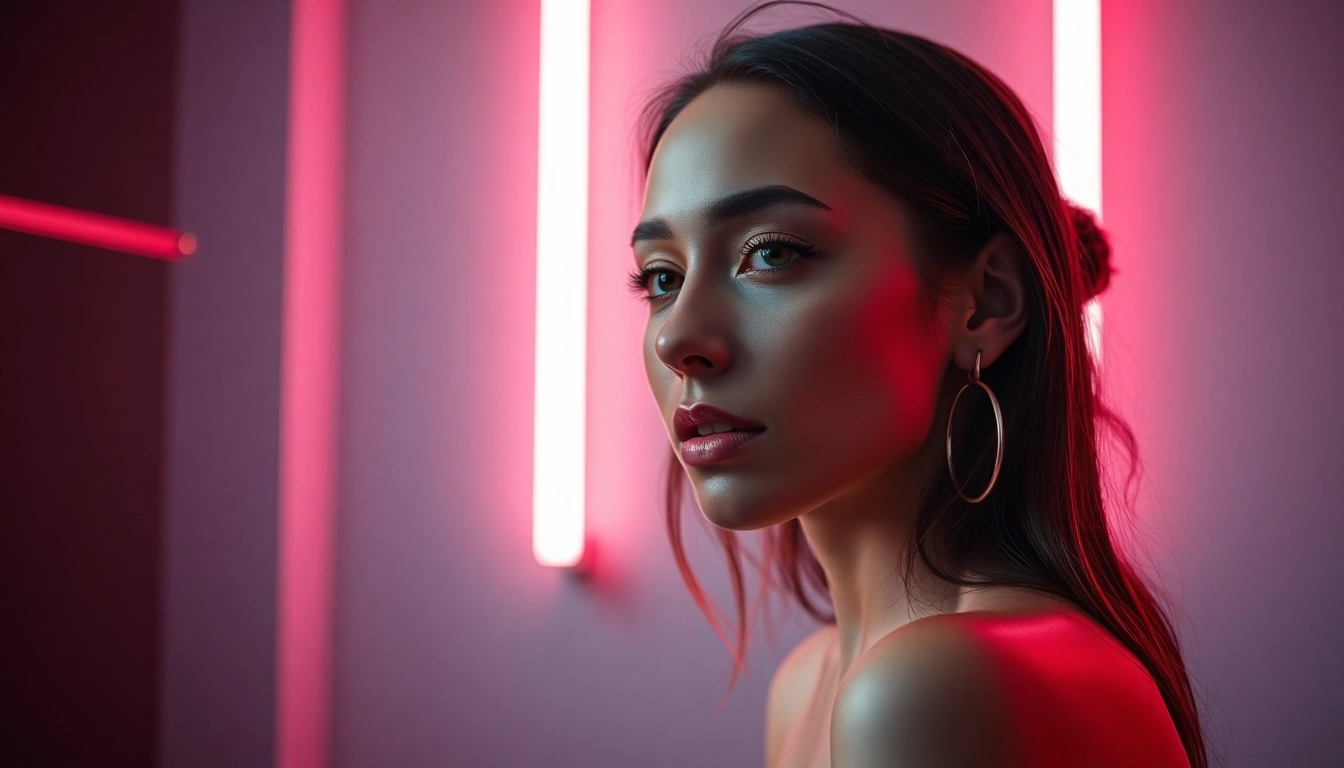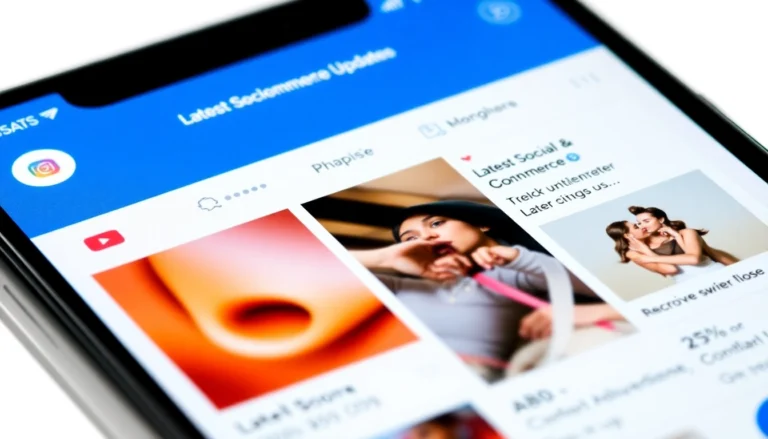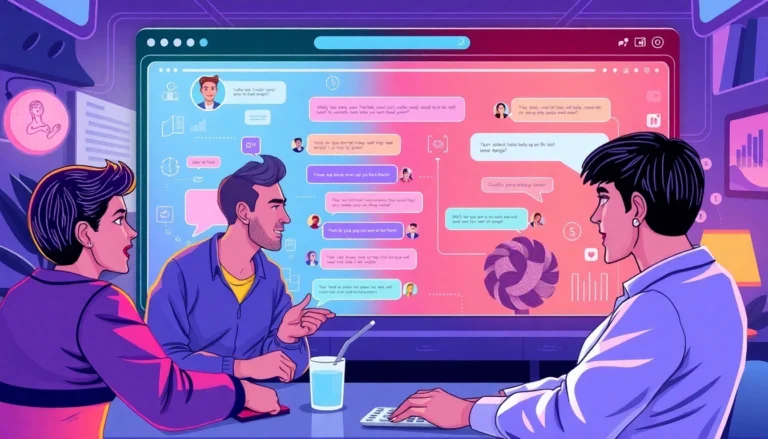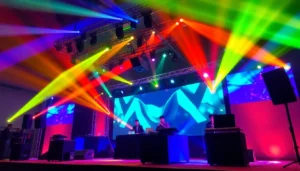The NSFW AI generator space in 2025 has moved beyond simple image synthesis. Today’s tools blend hyperrealistic rendering with emotion-aware modeling, enabling creators to craft scenes, characters, and narratives that were previously possible only in traditional art and video production. This article builds on the latest lineup of five leading generators—Dream Companion, InfluencersGoneWild, Girlfriend.ai, Aeonfriend Images, and Sugarlab Server Owners—and outlines how to evaluate them, integrate them into workflows, and measure impact while navigating ethical and legal boundaries.
For a deeper, side-by-side comparison and refreshed feature matrix, you can explore NSFW AI Image Generator —your go-to hub for current-generation tools and practical guidance.
NSFW AI Image Generator Foundations: What It Is and Why It Matters
Definition and Scope of NSFW AI Image Generator
NSFW AI image generators are specialized platforms that translate descriptive prompts into explicit adult-themed visuals and scenes, often incorporating realist textures, lighting, and nuanced facial expressions. Beyond simple image synthesis, many systems now offer dynamic control over character attributes, mood, and cinematic framing, enabling creators to produce both static images and short-form video assets. The scope includes not only standalone image outputs but also integrated storytelling experiences where visuals respond to evolving prompts or conversational context.
Industry Use Cases for NSFW AI Image Generator
Uses span entertainment storytelling, character design for adult narratives, marketing for virtual brands, and experimental art that pushes conventional boundaries. Teams may iterate on character sheets, storyboard frames, and social-ready assets quickly, reducing production time and enabling rapid A/B testing of visuals across platforms. As tools mature, creators increasingly blend style presets—ranging from hyperreal to stylized anime—to match narrative tone and audience expectations without sacrificing quality.
Ethical Boundaries and Compliance for NSFW AI Image Generator
Ethics and compliance center on consent, age-appropriate content, and platform policies. Responsible use demands strict moderation, clear labeling of generated content, and consistent enforcement of community guidelines. Legal considerations include IP rights, model training data provenance, and licensing for commercial use. Practically, teams establish internal playbooks that specify allowed prompts, content filters, and review workflows to minimize risk and protect brand integrity.
NSFW AI Image Generator Showdown: Top 5 Tools in 2025
Dream Companion vs Competitors: Feature Comparison
Dream Companion stands out for its emphasis on realism and emotional depth. It offers granular control over body types, facial expressions, voice tone, and social dynamics, allowing creators to craft scenes that feel authentic. Competitors vary: InfluencersGoneWild focuses on influencer-style branding and collaborative content across servers; Girlfriend.ai emphasizes interactive storytelling that evolves with conversation; Aeonfriend prioritizes speed and style variety across manga, anime, and other art forms; Sugarlab Server Owners centers on cinematic visuals with robust moderation and API access for professional workflows. The differentiator is how each tool balances realism, interactivity, and control with ease of use and governance features.
Evaluating Realism, Customization, and Speed
Realism is judged by texture fidelity, lighting fidelity, and believable anatomy. Customization assesses the granularity of prompts, the ability to set stylistic presets, and per-scene adjustments. Speed relates to rendering time, batch processing capability, and latency in interactive modes. When evaluating, run a common prompt across platforms and track render times, output variance, and the degree to which emotional cues are reflected in visuals. A practical rubric assigns scores for realism (0–10), customization (0–10), and speed (0–5), then weights them by your project priorities.
Access, Privacy, and Licensing Considerations
Access concerns include account security, multi-user collaboration, and API availability. Privacy considerations cover data handling, prompt history retention, and model-usage privacy. Licensing dictates whether assets are for personal use, commercial distribution, or exclusive branding, and may require attribution or additional fees for commercial deployment. Before committing, review terms of service, data policies, and any content-reuse restrictions to safeguard your projects and clients.
Prompting for NSFW AI Image Generator: Best Practices
Crafting Clear Prompts and Desired Outcomes
Begin with a concrete objective: describe the scene, characters, mood, environment, and camera framing. Break down prompts into core attributes (character anatomy, clothing, lighting), action cues (pose, gesture), and tonal intent (sensual, intimate, or cinematic). Use iterative prompts to refine details and reduce ambiguity, then validate the outputs against your brief to ensure alignment with the intended story.
Aligning Prompts with Mood, Style, and Safety
Match mood and style by explicitly naming visual conventions (e.g., “soft window light, chiaroscuro shadows, high-detail skin textures”) and safety constraints (content boundaries, near-photoreal decoupling, and consent-friendly framing). Document guardrails for each project to keep outputs on-brand and within platform guidelines while preserving creative freedom where allowed by policy.
Iterative Testing and Prompt Management
Maintain a prompts library with versioning, outcomes, and notes on what to adjust next. Use A/B testing to compare variants, track performance metrics (engagement, reach, and conversion where applicable), and continuously refine prompts based on data. Establish a runbook for recurring prompts to accelerate production without sacrificing quality.
Implementation: Implementing NSFW AI Image Generator into Your Workflow
Workflow Design and Asset Pipeline
Design a repeatable flow: briefing, prompt generation, rendering, review, and delivery. Integrate a centralized asset repository with metadata (style, mood, licensing) to streamline search and reuse. For teams, assign roles for prompt strategists, moderators, and designers to maintain quality and compliance across projects.
API Access, Tokens, and Automation
If API access is available, manage tokens securely, automate batch renders, and set up event-driven workflows (e.g., triggers on prompt approval). Use automation to scale production while enforcing prompts’ safety and brand guidelines via programmatic controls.
Moderation, Compliance, and Brand Safety
Implement content filters, review queues, and moderation dashboards. Align outputs with brand safety standards, ensuring that all visuals avoid non-consensual or exploitative framing and comply with platform policies. Regular audits help detect drift and uphold responsible use across teams.
Measuring Impact and Navigating Risks of NSFW AI Image Generator
KPIs, ROI, and Content Performance
Key indicators include engagement rate, time-to-delivery, asset reuse rate, and conversion metrics for campaigns using generated visuals. Track cost per asset, render costs, and time saved versus traditional production to quantify ROI. Use qualitative feedback from audiences and clients to supplement quantitative data.
Risk Management and Legal Considerations
Proactively address IP rights, consent, and defamation risks. Maintain clear documentation of approved prompts and outputs, avoid using real likenesses without permission, and ensure data handling complies with privacy laws. Establish a legal review checkpoint for high-stakes projects to minimize exposure.
Future Trends and Responsible Innovation
Expect advances in rendering realism, emotional intelligence, and cross-media storytelling. Responsible innovation will emphasize transparent disclosure of AI-generated content, robust moderation improvements, and governance mechanisms that balance creative freedom with user safety and legal compliance.








